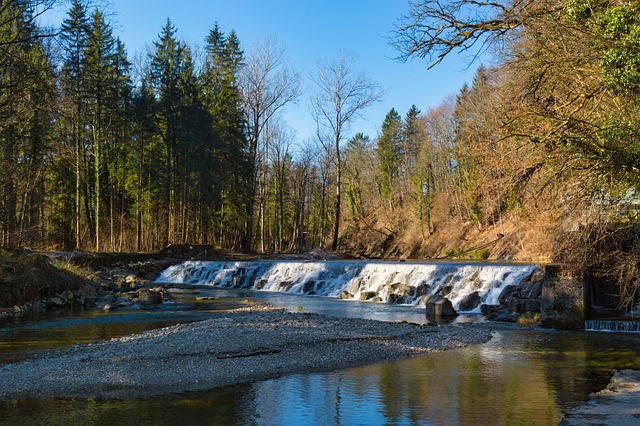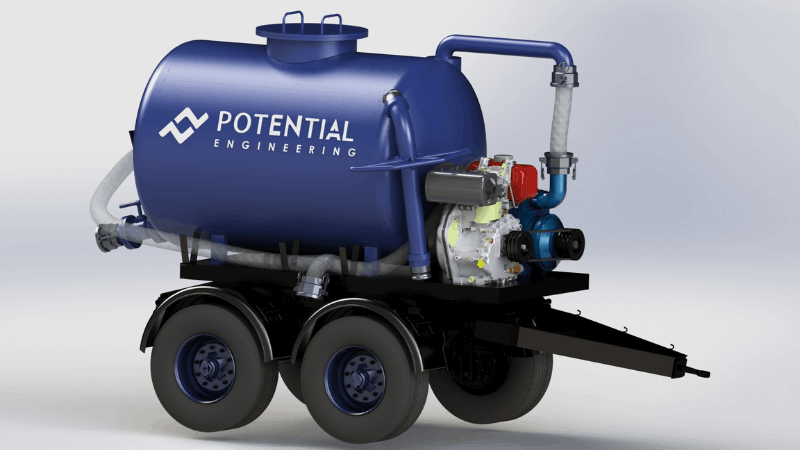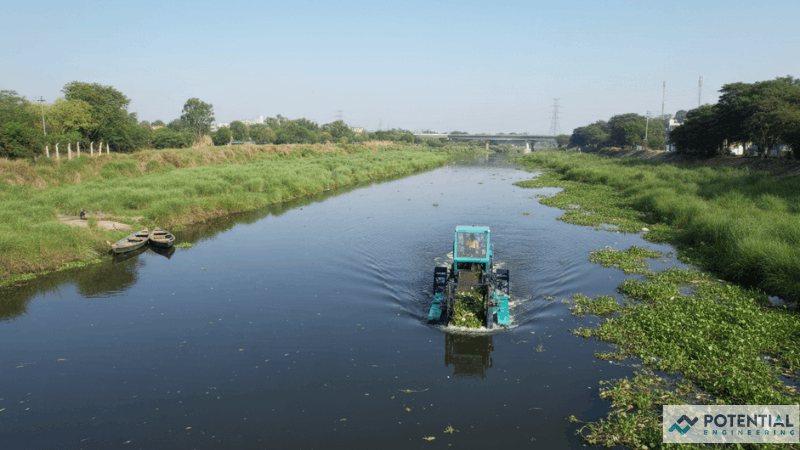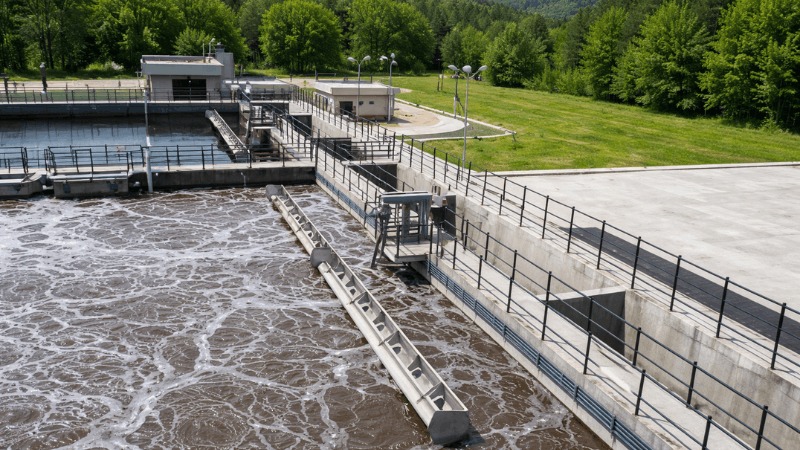What Are Oil Water Separators And What Are They Used For

Wastewater generated by commercial activities may contain oil, a probable environmental threat if discharged untreated. The treatment of wastewater involves use of oil water separators to remove oils from wastewater.
What is an Oil Water Separator?
An oil water separator is an equipment to separate oil present in wastewater. It separates free-floating oils, emulsified oils, dissolved oils, and suspended solids from contaminated wastewater. It plays a crucial role in treating wastewater generated by industries.
When do you need an Oil Water Separator?
The requirement for oil water separator arises when:
1. The industry generates wastewater containing oils
2. Wastewater is discharged into the receiving channels
3. To meet the compliance of local authorities
The composition of wastewater generated is mainly dependent on the type of industry and the production process, which largely vary from industry to industry. In most of the cases, traces of oil are present in wastewater.
Regulatory bodies have set standards to mitigating the presences of harmful contaminants in wastewater which are discharged into the environment, one of which is the presence of oils. These bodies may levy fines and suspend production if businesses fail to adhere to the discharge norms.
In a wastewater treatment plant, oil water separators ensure safeguarding of subsequent equipment and improve process efficiency. They play an important role in controlling maintenance cost and improved savings.
Different Types of Oil Water Separators
Oil water separators differ based on their operations, though they all meet the requirement of separating oil from water. The most common types of oil water separators are:
1. Gravity-based separator
2. Coalescing plate separator
3. Hydrocyclone separators
4. Petrol and oil interceptor pits
Working of Oil Waster Separators
1. Gravity-based separator: Relies on the gravity difference between water and the specific gravities of oils. It controls fluid velocity and pressure to separate contaminants from water. The different types of gravity-based separators are API Separator, Corrugated Plate Interceptor, and Tilted Plate Interceptor.
2. Coalescing separator: The flow of contaminated water is similar to that of a gravity-based separator. The differentiator is the use of an oleophilic media. The media facilitates the binding of oil droplets, increase in size and buoyancy facilitating swift rising of oil to the surface. The oil is skimmed from the surface of the water.
3. Hydrocyclone separator: Hydrocyclone works on the principle of gravity to remove oil droplets from wastewater using centrifugal force. The oil is separated from water by maintaining balanced differential pressure across the hydrocyclone.
4. Petrol & oil interceptor pits: Are containment tanks. These tanks slow down the flow of wastewater. It allows the grease, oil, petrol, diesel, and hydrocarbons to float on surface of water for skimming.
Oil Water Separator Finds Application in:
• Car dealerships
• Service stations
• Commercial car wash station
• Food processing
• Construction
• Mining
Wastewater treatment is essential to ensure that our environment is safe from contaminants. When untreated wastewater enters the receiving channels, it has immediate adverse effects and a long-lasting impact on the entire ecosystem, which may have cascading effects. To mitigate the problems caused by the discharge of untreated wastewater into the environment, local authorities across the globe have defined wastewater discharge parameters. Businesses that fail to adhere to the discharge norms are penalized for their irresponsible actions.
Oil water separators combined with belt skimmer, brush skimmer etc. helps in safeguarding our environment. They are efficient and environment-friendly equipment for oil removal. Oil water separators help businesses optimise their processes, save costs and abide by regulatory norms.
Frequently Asked Questions
Q.1 How can an oil skimmer help in effectively removing oil from water?
A. An oil skimmer can effectively remove oil from water by using a floating collector that skims the oil off the surface. Oil skimmer manufacturers In India design and produce these devices with specialized materials and mechanisms to efficiently separate oil from water, helping to prevent environmental pollution.
Q.2 Why are sluice gates important in water management systems?
A. Sluice gates are important in water management systems because they control the flow of water, prevent flooding, and regulate water levels in canals, rivers, and reservoirs.
Q.3 What is a mechanical bar screen and how does it work?
A. A mechanical bar screen is a wastewater treatment device that uses a series of spaced bars to filter out large debris and solids from sewage or industrial water.It works by allowing water to pass through the gaps between the bars while retaining and lifting out larger objects, which are then typically collected and disposed of, allowing cleaner water to continue through the treatment process.





